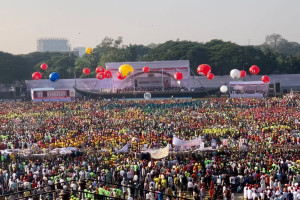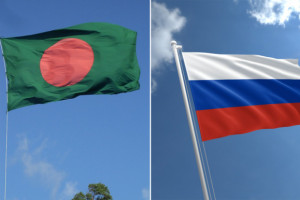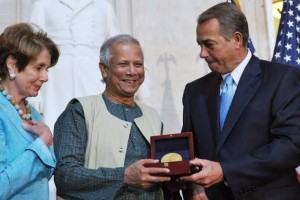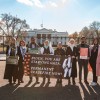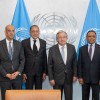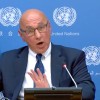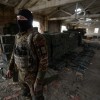Sudan’s Situation Going Worsen
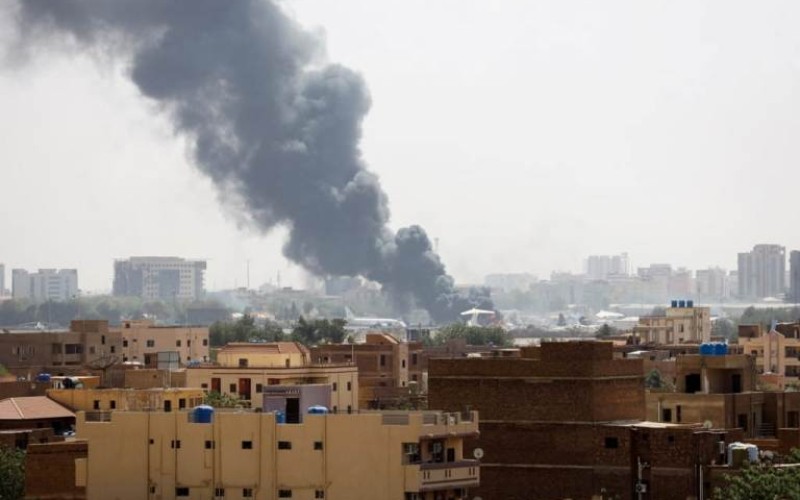
Since April 15, 2023, fighting between the Sudanese Armed Forces and the Rapid Support Forces has occurred in Sudan. On April 24, the two conflicting parties agreed on a 72-hour ceasefire, which was partly held, although sporadic artillery gunfire could still be heard in Khartoum. Fighting has continued, with displacement reported in Khartoum, Northern, Blue Nile, North Kordofan, North Darfur, West Darfur, and South Darfur states, including cross-border movements to surrounding countries (Reuters 25/04/2023; OCHA 25/04/2023). In principle, this ceasefire allows for the evacuation of foreign nationals and civilians from conflict areas. However, those in the capital city of Khartoum could still hear sporadic gunfire and the sounds of heavy artillery on April 25 (BBC 25/04/2023; Al Jazeera 25/04/2023 a). As of April 26, the conflict had led to 459 deaths and at least 4,000 injuries (Al Jazeera 26/04/2023; OCHA 26/04/2023). The Central Committee of Sudanese Doctors has predicted an impending paralysis of the country’s healthcare system. According to Médecins Sans Frontières, the conflict will likely intensify humanitarian needs in the country, which were already at their highest in a decade (MSF, April 20, 2023). Security concerns for humanitarian workers are among the factors affecting the provision of humanitarian assistance to people in need in Sudan. As of April 25, the conflict in Sudan had killed five UN workers since fighting broke out on April 15 (Reuters, April 25, 2023, and April 21, 2023). As of April 26, at least 12 healthcare personnel and health science students had been killed (Al Jazeera, April 26, 2023; Insecurity Insight and Physicians for Human Rights, April 26, 2023)
Healthcare Situation
According to ACAPS, Health facilities have suspended their services because of their proximity to fighting to avoid risking patients’ and personnel’s lives. The conflict has forced 70% (55 out of 79) of the hospitals in conflict-affected zones (Khartoum, North Kordofan, South Kordofan, and West Darfur states) to shut down, leaving thousands of injured civilians without access to healthcare. As of April 20, fighting had resulted in the bombing of nine facilities and forced evictions from 16 (MSF, April 20, 2023; Sudan Doctors Syndicate, Preliminary Committee, April 19, 2023). Before the crisis, 82 hospitals were active in Khartoum; as of April 26, 59 hospitals in Khartoum and surrounding cities are non-operational (Al Jazeera, April 26, 2023; Insecurity Insight and Physicians for Human Rights, April 26, 2023).
- Of the still operational general hospitals in Khartoum and other conflict-affected states, some only offer first aid. Some are at risk of closure because of a lack of personnel, medical supplies, power, water, and fuel for generators (Sudan Doctors Syndicate – Preliminary Committee, Facebook, accessed April 24, 2023; Al Jazeera, April 20, 2023).
- Hospitals run out of blood, transfusion equipment, intravenous fluids, and other vital supplies (Al Jazeera, April 20, 2023).
- The WHO has warned that increasing attacks on health infrastructure hinder access to care for citizens. As fighting continues, hospitals have been looted, ambulances hijacked, and medical workers attacked. On April 20, WHO called on the conflicting parties to allow the injured to receive medical attention and to open a humanitarian passage for health workers, patients, and ambulances (WHO, April 18, 2023; The Telegraph, April 19, 2023; Reuters, April 20, 2023).
USCMO Sowing concern.
The U.S. Council of Muslim Organizations (USCMO), the nation’s umbrella group of national, regional, and local Muslim organizations, adds its voice to the growing international cry for Sudan’s previously cooperating coup leaders, General Abdel Fattah al-Burhan, the army chief, and General Mohamad Hamdan “Hemedti” Dagalo, the head of the Rapid Support Forces (RSF) to immediately cease their unconscionable power struggle resulting in growing bloodshed and human rights tragedy that threatens to devolve into full-blown civil war.
“No good will come to the suppressed and suffering people of Sudan from this personal fight for the military dictatorship of the country, waged supposedly to ‘save’ the country and bring people prosperity,” said Oussama Jammal, USCMO secretary general. “All it’s doing is killing the innocent, turning the downtrodden into impoverished wanderers, destroying their healthcare system, starving the poor, and blocking direly needed democratic political change.”
Sudan, like most of the Arab world, has endured endless military coups (at least a dozen since its 1958 independence). Always conducted to save the nation and enrich the people, without exception, they end in disastrous, massively oppressive, and impoverishing strongman dictatorships.
“When have any of these military coup leaders ever returned power to the people? When has any coup brought national prosperity and the people’s freedom? When has a single one of these ostensibly ‘great’ generals and armies ever even won a real war against an aggressor? They’ve done nothing but repress, intimidate, and wreak violence against their own and other innocent peoples of the region,” said Jammal.
USCMO leadership and American Muslims call for the people of Sudan to have free civilian political parties, elections, and rule. The nation’s army and military leaders should come under that civilian, democratically elected rule of government, and generals and would-be military commanders should focus on providing the country with an effective defense.
Like our American Muslim voices, our sincere prayers are with Sudan's beleaguered and suffering people. God kept them secure, provided for their sustenance, and set them free from the bondage of militarized politics and power-hungry generals.



